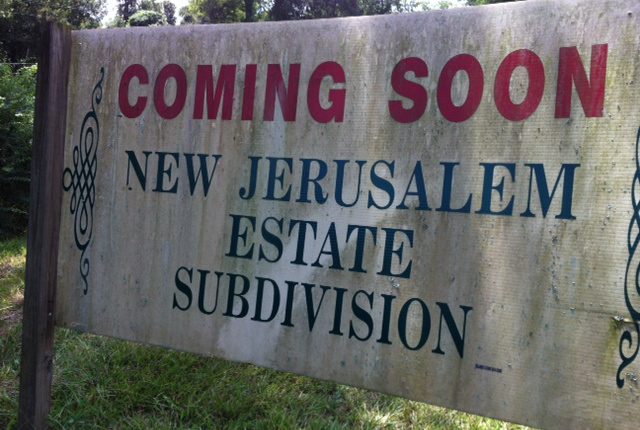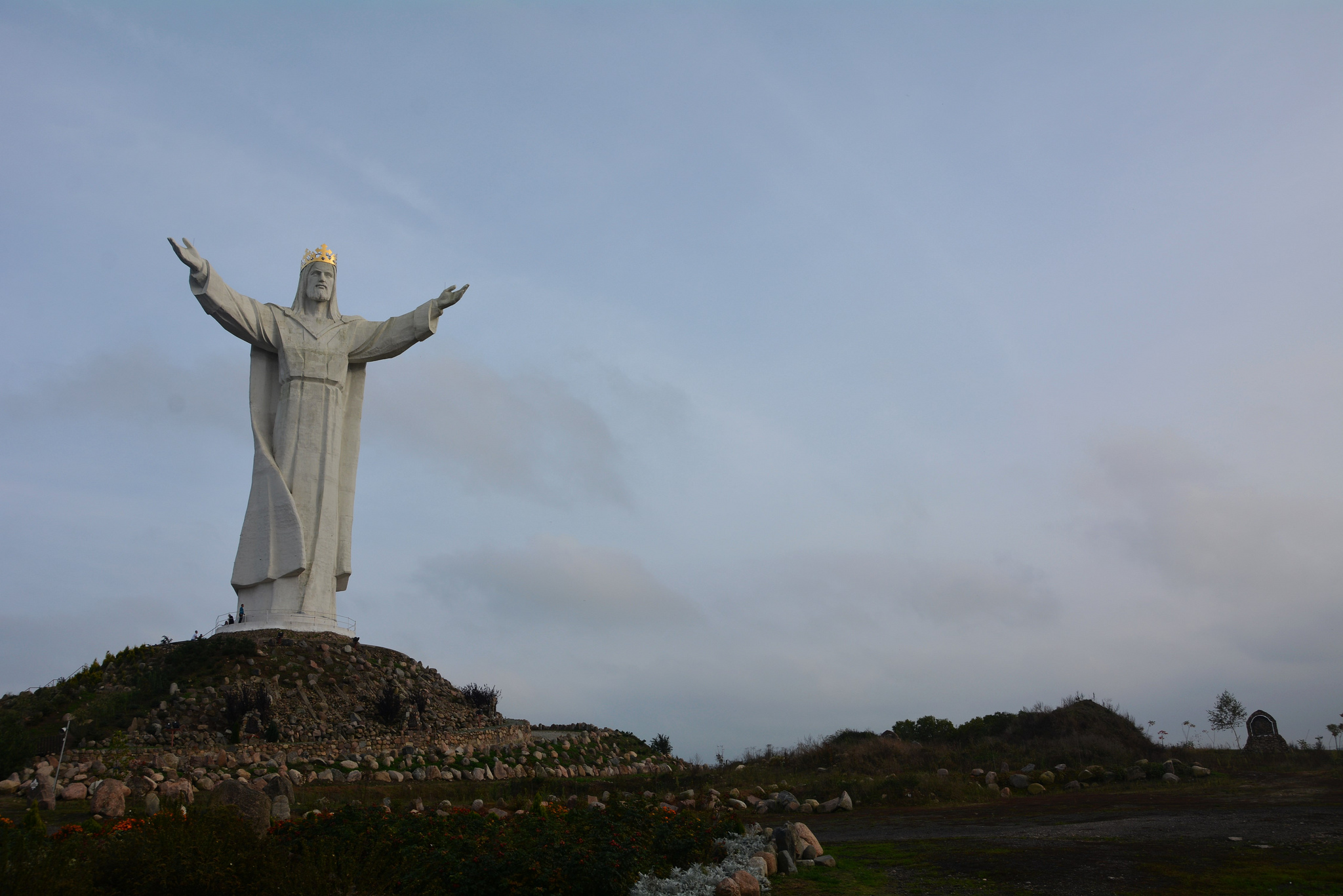Posts
 Today’s Second Reading from the Mass for the Sixth Sunday of Easter comes to us from the book of Revelation. In chapters 21-22, the last two chapters of the book, we see “New Jerusalem” (Rev 21:2) being established. Here in the “new world”, we have cities like New York, which corresponds to the old city of York in the British Empire. Likewise, there is need of a New Jerusalem for another “new world”. This new world is the new creation God will establish at the eschaton, at the end of time. Heaven will unite with earth. As we read today, the New Jerusalem comes “down out of heaven from God” to earth:
Today’s Second Reading from the Mass for the Sixth Sunday of Easter comes to us from the book of Revelation. In chapters 21-22, the last two chapters of the book, we see “New Jerusalem” (Rev 21:2) being established. Here in the “new world”, we have cities like New York, which corresponds to the old city of York in the British Empire. Likewise, there is need of a New Jerusalem for another “new world”. This new world is the new creation God will establish at the eschaton, at the end of time. Heaven will unite with earth. As we read today, the New Jerusalem comes “down out of heaven from God” to earth:
The angel took me in spirit to a great, high mountain
and showed me the holy city Jerusalem
coming down out of heaven from God.
It gleamed with the splendor of God.
Its radiance was like that of a precious stone,
like jasper, clear as crystal.
It had a massive, high wall,
with twelve gates where twelve angels were stationed
and on which names were inscribed,
the names of the twelve tribes of the Israelites.
There were three gates facing east,
three north, three south, and three west.
The wall of the city had twelve courses of stones as its foundation,
on which were inscribed the twelve names
of the twelve apostles of the Lamb
– Revelation 21:10-14
As Revelation scholar Wilfrid J. Harrington noted: “God did not say, ‘I will make new things’; rather, he is making all things new”. Like the Property Brothers, God is in the business of renovation, not demolition. God will not destroy the good creation he has made; he will transform it.
We see an element of this in the second reading, where both the twelve tribes of Israel are mentioned, along with the twelve apostles of the Lamb. There is continuity in the people of God; the Church does not reject true Israel, but is Israel in all its fullness, with the Messiah having come. Membership in God’s family is no longer restricted to one ethnic group, but now encompasses people from every tribe, tongue, and nation. This fulfills God’s original promise to Abraham: all the nations would be blessed through Abraham, in and through the nation of Israel.
We also see this in God’s plan for creation, and even for ourselves. In this Eastertide, when we celebrate the Resurrection of Jesus of Nazareth, we understand that he is the “firstfruits” of the New World. We too await “the resurrection of the dead, and the life of the world to come” (Nicene Creed) in a world that will be transformed, not thrown away. This creation made by God is “very good” and God will redeem it, including our very bodies. Saint Paul writes that the entire creation itself “groans” as it awaits renewal (Rom 8:19).
As we wait for this, what should we do? How should we live? As Saint Peter writes elsewhere, we should live as good citizens of the heavenly Jerusalem even now, as we live in the earthly city:
(W)hat kind of people ought you to be? You ought to live holy and godly lives as you look forward to the day of God and speed its coming. That day will bring about the destruction of the heavens by fire, and the elements will melt in the heat. But in keeping with his promise we are looking forward to a new heaven and a new earth, where righteousness dwells.
So then, dear friends, since you are looking forward to this, make every effort to be found spotless, blameless and at peace with him.
– 2 Peter 3:11-14

Q. This Sunday is the Feast of Christ the King. Can you explain how this relates to the second reading, which is taken from the Book of Revelation?
A. In the Old Testament, the Kings of Israel (think of David and Solomon) and the priests of Israel (think of someone like Caiaphas, the High Priest who condemned Jesus to death, along with Pilate), were different individuals with different roles. In fact, the Essenes (the Jewish sect that lived, among other places, at Qumran and wrote the Dead Sea Scrolls) expected two different Messiahs to come: a Priestly Messiah, and a Kingly Messiah. They actually expected the Kingly Messiah to wage war against Rome, and that he would personally slay “The King of the Kittim” (the Roman Emperor himself) in the final battle.
Jesus radically combines (and redefines) the roles of King and Priest in his own person. In fact, Jesus is both Priest and Victim, the sacrifice and the one who offers it: “Jesus Christ is the faithful witness” (Revelation 1:5). The word “witness” in the original Greek text means “martyr” – one who offers one’s life for God. Unlike the Kingly Messiah envisioned in the Dead Sea Scrolls, Jesus does not attempt to kill the Roman official, Pilate, but instead allows himself to be killed as a sacrifice for sin. This is why Jesus says to Pilate (as we read in today’s Gospel): “My kingdom does not belong to this world. If my kingdom did belong to this world, my attendants would be fighting
to keep me from being handed over to the Jews” (John 18:36).
Jesus is indeed King – not just over Israel, but over all nations: “the ruler of the kings of the earth” (Revelation 1:5). Jesus received this kingship from God the Father, which is why Revelation says that “he is coming amid the clouds” (Revelation 1:7). This is actually a reference to today’s first reading from the Old Testament Book of Daniel (Daniel 7:13-14), which speaks of “one like a son of man” (remember, “Son of Man” was Jesus’ favourite self-designation on the Gospels), “coming with the clouds of heaven” to receive “dominion, glory, and kingship” from “the Ancient of Days” (God the Father). The Daniel text says that “all peoples, nations, and languages serve him”. This will indeed be fulfilled at Jesus’ Second Advent.
Q. How can we apply these truths to our lives today?
A. Today’s second reading reminds us that Jesus “has made us into a kingdom, priests for his God and Father” (Revelation 1:6). By virtue of our baptism, we all share in Christ’s “offices” of King and Priest. And we must exercise these offices the way Jesus did: we don’t “Lord it over people”, but rather lay down our lives for others by serving them as Jesus did. Everything we do – in our spiritual life, our work, our relationships, and in sharing our faith – must be united by this concept of serving God and others. This is our priestly sacrifice for God. And in Jesus’ Kingdom, “to serve is to reign.”

